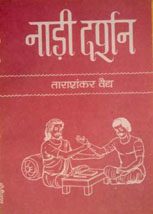Ayur – Life / Veda – Knowledge. Ayurveda in its simplistic form translates from ancient Sanskrit as the “science of life”, It is considered to be the oldest healing science. It has been practiced in India for more than 5,000 years and has helped millions of people to create a transformative healing process which has brought more peace, happiness and balance to their lives.
5 ELEMENTS
 The sages of ancient India established a way for understanding human nature based on five elements: Earth, Water, Fire, Air and Ether (Space). These elements manifest themselves as three different energies, or doshas, known as Vata (Air / Ether), Pitta (Fire/Water) and Kapha (Water / Earth). Just like everyone has a unique fingerprint, each person is born with a unique combination (Prakriti) of these forces, and this combination affects the way each of us function. As we move through life the proportion of each one of these three Doshas fluctuates, depending on one’s environment, diet, seasons, age and many other factors (the present balance is called Vikriti). As they move in and out of balance, the doshas can affect our health, energy levels and mood. Furthermore, each dosha is associated with a specific bodily shape, and is linked to certain personality traits.
The sages of ancient India established a way for understanding human nature based on five elements: Earth, Water, Fire, Air and Ether (Space). These elements manifest themselves as three different energies, or doshas, known as Vata (Air / Ether), Pitta (Fire/Water) and Kapha (Water / Earth). Just like everyone has a unique fingerprint, each person is born with a unique combination (Prakriti) of these forces, and this combination affects the way each of us function. As we move through life the proportion of each one of these three Doshas fluctuates, depending on one’s environment, diet, seasons, age and many other factors (the present balance is called Vikriti). As they move in and out of balance, the doshas can affect our health, energy levels and mood. Furthermore, each dosha is associated with a specific bodily shape, and is linked to certain personality traits.
VATA (Air and Ether)

 Qualities : Dry, rough, cool, subtle, mobile
Qualities : Dry, rough, cool, subtle, mobile
People with a Vata constitution are like the wind, agile and fast. They think, walk and talk quickly. They tend to be lanky and thin and frequently have dry skin and hair. When in balance, Vatas are creative and lively. When out of balance, they can experience anxiety; poor sleep and feel unstable and ungrounded. To balance Vata it is important to maintain calm and routine, avoid extreme temperatures and get adequate rest.
PITTA (Fire and Water)

 Qualities : Hot, light, oily, sharp, spreading, liquid
Qualities : Hot, light, oily, sharp, spreading, liquid
Pitta types have many of the qualities of fire. Fire is hot, penetrating, and sharp. Similarly, pitta people have warm bodies, penetrating ideas and sharp intelligence. They have a strong metabolism, good digestion and a hearty appetite. When out of balance, they can become irritable and judgmental. To maintain balance, Ayurveda advises Pittas to avoid extreme heat, meditate and eat cooling, non-spicy foods.
KAPHA (Water and Earth)

 Qualities : heavy, moist, cool, dense, slow, sticky, regular
Qualities : heavy, moist, cool, dense, slow, sticky, regular
Those with a Kapha constitution are strong, loving, calm and tolerant. They are often physically large and psychologically solid, happy and good-natured. When out of balance, Kaphas tend to experience greed and possessiveness. They can also be susceptible to weight gain, lethargy and headaches. To maintain balance Kapha-types are advised to exercise and eat invigorating foods.
CAUSES OF DISEASE AND TREATMENTS
From an Ayurvedic perspective, disease begins when we are out of harmony with our bodies and our environment. When the doshas are imbalanced, the agni (the fire within the body) becomes weak. Agni is the fiery metabolic energy of digestion, which takes care of a range of functions from digestion of food, to giving color to the skin, to elimination of toxins. When agni is weak, there is not enough digestive power to metabolize food into energy. Undigested food is broken down by fermentation, rather than digestion and as result the body accumulates ama (toxins). When people continue their poor dietary practices, ama moves beyond the digestive tract via the circulatory system, settling in various bodily tissues and clogging body channels. When the body channels choke, the body becomes sick. If disharmony is the cause of disease, then a restoration of harmony is the cure. Ayurveda is a holistic science, meaning that it is concerned with going to the root of disease, not merely treating its symptoms. It looks at the person’s entire lifestyle, and its healing tools include, nutrition, massage, physical exercise such as Yoga, and spiritual practice, such as meditation and the recitation of mantras. Ayurveda is not a system of healing in which everyone follows the same program. Ayurveda sees each person as an individual with a different (prakriti) internal balance of energy. Understanding the person’s constitution allows an Ayurvedic Specialist to set up a program specific to that individual. Using the tools of Ayurveda we can take control of our health and well- being.
To know about your Dosha (Ayurvedic constitution) book here
 Ayurveda is a holistic and natural approach to health. It believes that each person is a microcosm of the Universe; and like the Universe made up of five elements (earth, water, fire, air and ether). These five elements are “grouped” in each of us into three doshas: Vata(air/ether), Pitta (fire/water) and Kapha (water/earth). Each one of us is made up of a unique combination of these elements; each one of us own a unique dosha.
Ayurveda is a holistic and natural approach to health. It believes that each person is a microcosm of the Universe; and like the Universe made up of five elements (earth, water, fire, air and ether). These five elements are “grouped” in each of us into three doshas: Vata(air/ether), Pitta (fire/water) and Kapha (water/earth). Each one of us is made up of a unique combination of these elements; each one of us own a unique dosha.
By understanding who we are based on the doshas, we know best how to maintain and improve our health. When the doshas are balanced, mind and spirit of the body is in harmony and the mind is at peace. When the doshas become imbalanced (either accumulated or weakened) due to inappropriate diet or stress, one can become ill. Brining balance back to the doshas can help restore and maintain health. Everyone has three doshas but a certain combination is more predominant. A dosha consultation provides you with the knowledge of your dosha and how Ayurveda can help bring the doshas in balance. The 60 minute session (60min 60€) consists of an in-depth questionnaire, which helps determine your Prakriti (constitution) and Vikriti (the current state of the doshas). Knowing your dosha can help you make the right choices in your exercise, diet and daily routine and massage.
“Let food be the medicine,” said Hippocrates, thus formulating one of the foundational principles of holistic health. This approach has been originally formulated by Ayurveda.
